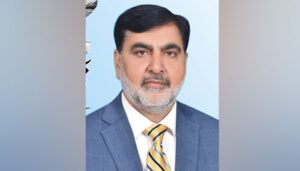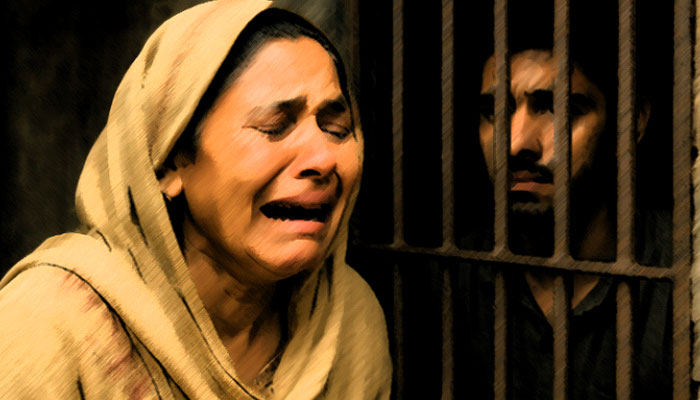August 5, 2019, marks an indelible scar in the history of Jammu and Kashmir. On this day, the Indian government, led by the Hindu nationalist Bharatiya Janata Party (BJP), unilaterally abrogated Articles 370 and 35-A of the Indian
Constitution—stripping the disputed region of its special status, dividing it into Union Territories, and bringing it directly under the control of New Delhi.
This was not a mere constitutional maneuver; it was a direct assault on the unique identity, political autonomy, and internationally recognized right to self- determination of the Kashmiri people. The move blatantly violated international law, the UN Charter, and numerous United Nations Security Council (UNSC) resolutions that recognize Jammu and Kashmir as a disputed territory whose final status is to be determined by a plebiscite.
Hindutva Mindset and the Constitutional Aggression:
The decision reflected the broader ideological project of Hindutva—an
exclusionary, majoritarian framework that views religious minorities, especially Muslims, as second-class citizens. For the Modi regime, Kashmir represented a barrier to their vision of a homogenized Hindu India. The constitutional aggression of August 5 was a manifestation of that narrow, supremacist ideology.
Yet despite this act of aggression, the people of Kashmir rejected the decision unequivocally. No power on earth, including the fifth-largest military in the world, can erase the Kashmiri people’s national identity and their unyielding aspiration for freedom.
Demographic Engineering and Economic Subjugation
In the aftermath of August 5, India unleashed a campaign of demographic reengineering—issuing domicile certificates to non-Kashmiris, settling outsiders in the region, and enabling them to own land and compete for jobs traditionally reserved for native Kashmiris. This neocolonial tactic aims to convert a majority- Muslim region into a compliant demographic that suits the ideological goals of the ruling elite.
Furthermore, Kashmiris face economic exploitation, suppression of free expression, and institutionalized disenfranchisement. Youth are targeted, employment is politicized, and access to education and health care is severely restricted. However, these policies have not broken the resolve of the people.
Kashmiri Youth and Diaspora: A Rising Global Voice
One of the most encouraging developments in recent years is the emergence of a dynamic and politically active Kashmiri youth, both within the Valley and among the global diaspora. This new generation, armed with education, awareness, and digital tools, is raising Kashmir’s voice in international forums, universities, parliaments, and human rights platforms worldwide.
Kashmiri diaspora communities in London, Washington, Brussels, Istanbul, and beyond have transformed into effective ambassadors of their people’s cause.
Their peaceful yet assertive advocacy has challenged India’s false narrative of Kashmir being an “internal matter.” In reality, Kashmir remains one of the oldest unresolved disputes on the UN agenda.
A Call for International Accountability and Mediation
It is no longer acceptable for the international community to remain passive in the face of such blatant violations. The abrogation of Article 370 was a unilateral act in a bilateral and internationally recognized dispute. World powers, especially the United States, must reclaim their role in conflict resolution—not through vague rhetoric, but through firm diplomacy.
In this context, former U.S. President Donald Trump’s 2019 offer to mediate between India and Pakistan was both timely and significant. While India summarily rejected it, the initiative reflected the urgency and legitimacy of international intervention in Kashmir. More recently, in May 2025, President Trump once again urged India to cease its aggression, playing a pivotal role in defusing a war-like situation between India and Pakistan. On that occasion, he reiterated his earlier offer to mediate the Kashmir dispute and emphasized the need for a peaceful and just resolution in accordance with international norms.
International law is not selective. The principles of justice, self-determination,
and human dignity must apply equally to Kashmiris as they do to Palestinians, Ukrainians, and others. If the rules-based world order is to mean anything, Kashmir cannot be ignored.
The Hindutva Threat to India Itself
Modi’s aggressive Hindutva agenda not only threatens Kashmir but also endangers India’s own democratic fabric. Religious polarization, suppression of dissent, and violent nationalism are eroding India’s institutions from within.
History is witness: states that rule by fear, discrimination, and injustice collapse under the weight of their own contradictions.
India cannot win Kashmir by occupation. No matter how many soldiers are deployed, how many laws are rewritten, or how many voices are silenced, the soul of Kashmir remains defiant.
Steadfast in the Struggle for Freedom
The people of Kashmir—whether in the snowbound valleys of the region or in exile across the world—remain united in their cause. Their belief in the justness of their struggle is unshakable. They do not despair; they know that despair is a sin. They do not submit; they know submission is betrayal.
The future of Kashmir belongs to those who continue to fight for justice with courage and conviction. The global Kashmiri voice is louder than ever before. Their peaceful resistance, fortified by international law and human rights, will eventually compel the world to act. And when that moment comes, the darkness of August 5 will be replaced by the dawn of freedom.
By: Farhat Ali Mir






Comments are closed, but trackbacks and pingbacks are open.